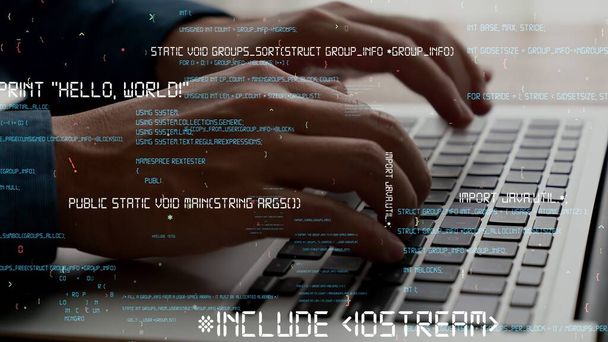OpenZeppelin is a suite of open-source tools and libraries for developing smart contracts on the Ethereum blockchain. It provides a collection of pre-written, audited, and reusable code modules that can be used to build secure and efficient smart contracts. These modules cover a wide range of functionalities, including:

• Token contracts: For creating and managing various types of tokens, such as ERC20, ERC721, and ERC1155 tokens.
• Ownable contracts: For implementing ownership mechanisms and transfer restrictions.
• Pausable contracts: For temporarily halting or resuming the execution of smart contracts.
• Upgradable contracts: For updating the code of existing smart contracts without affecting their deployed state.
• Safe math libraries: For preventing integer overflow and underflow errors in mathematical operations.
• Cryptographic libraries: For implementing cryptographic functions, such as hashing and encryption.
OpenZeppelin is widely used by developers in the Ethereum ecosystem due to its reputation for security, reliability, and ease of use. By using OpenZeppelin, developers can save time and effort by leveraging pre-tested code modules, and reduce the risk of introducing vulnerabilities into their smart contracts.
What the OpenZeppelin is Used For
OpenZeppelin is a platform that provides open-source frameworks and tools for building and securing smart contracts, primarily in the blockchain ecosystem, particularly for Ethereum. Their suite of products is widely used by developers and organizations to create decentralized applications (dApps) and manage blockchain infrastructure.
What the platform does:
1. Smart Contract Libraries: OpenZeppelin provides secure, reusable, and community-vetted smart contract libraries. These libraries help developers write Solidity code for Ethereum (and other blockchains) in a way that ensures security and efficiency.
2. Security Audits: OpenZeppelin offers security auditing services for smart contracts, ensuring that the code used in decentralized applications (dApps) is free from vulnerabilities and exploits.
3. Defender: OpenZeppelin’s Defender platform is designed to help developers automate, monitor, and manage their smart contracts more efficiently. It includes features for monitoring smart contract activity, handling admin operations, and setting up secure workflows for governance.
4. Upgrades Plugins: OpenZeppelin provides tools to implement and manage upgradable smart contracts. This is essential because blockchains are immutable, so developers need mechanisms to update contracts while maintaining decentralization.

Source: create.vista.com
OpenZeppelin’s Mission:
The mission of OpenZeppelin is to secure and grow the decentralized ecosystem. They aim to enable developers to build secure applications with less effort, thus accelerating the growth of blockchain technologies. They prioritize security at every step, ensuring the robustness and trustworthiness of decentralized apps (dApps) and protocols across the blockchain ecosystem.
Their commitment to open-source solutions encourages collaboration and standardization within the developer community, ultimately contributing to the security and scalability of decentralized systems.
Services That Users Can Benefit from the OpenZeppelin Platform
OpenZeppelin offers a range of services to support the development and deployment of secure smart contracts on the Ethereum blockchain. Here are some of the key services they provide:
1. OpenZeppelin Contracts:
• A vast library of pre-written, audited, and reusable code modules for common smart contract functionalities.
• These modules cover areas like token standards (ERC20, ERC721, ERC1155), ownership, pausable contracts, upgradable contracts, safe math libraries, and cryptographic libraries.
2. OpenZeppelin Defender:
• A security monitoring and alerting platform that helps developers proactively identify and mitigate potential vulnerabilities in their smart contracts.
• It offers features like gas optimization, contract upgrade management, and real-time alerts for suspicious activity.
3. OpenZeppelin Upgrades:
• A tool that enables developers to upgrade their existing smart contracts without affecting their deployed state.
• This is crucial for fixing bugs, adding new features, or adapting to changes in the Ethereum ecosystem.
4. OpenZeppelin Wizard:
• A user-friendly interface that guides developers through the process of creating and deploying smart contracts.
• It simplifies the development process and reduces the risk of errors.
5. OpenZeppelin SDK:
• A comprehensive software development kit that provides tools and libraries for interacting with smart contracts from various programming languages.
• This allows developers to build applications that interact with smart contracts on the Ethereum blockchain.
6. OpenZeppelin Consulting:
• Offers expert consulting services to help organizations develop and deploy secure and scalable smart contract applications.
• Their consultants can provide guidance on best practices, security audits, and custom development.
By leveraging these services, developers can build more secure, reliable, and efficient smart contracts on the Ethereum blockchain.
Getting Started with OpenZeppelin
1. Choose Your Development Environment:
o Solidity: OpenZeppelin | Defender use environments like Remix, Truffle, or Hardhat.
o JavaScript/TypeScript: For interacting with smart contracts, use frameworks like Ethers.js or Web3.js.
2. Install OpenZeppelin Contracts:
o Use npm or yarn: npm install @openzeppelin/contracts.
o Solidity environments like Truffle/Hardhat also support OpenZeppelin contracts.
3. Import Contracts:
4. Deploy and Interact:
o Deploy your contract using your environment and interact with it via a web3-enabled wallet.
Additional Resources:
• OpenZeppelin Documentation
• Tutorials and Community Support.
Learn from market wizards: Books to take your trading to the next level

 Hot Features
Hot Features












